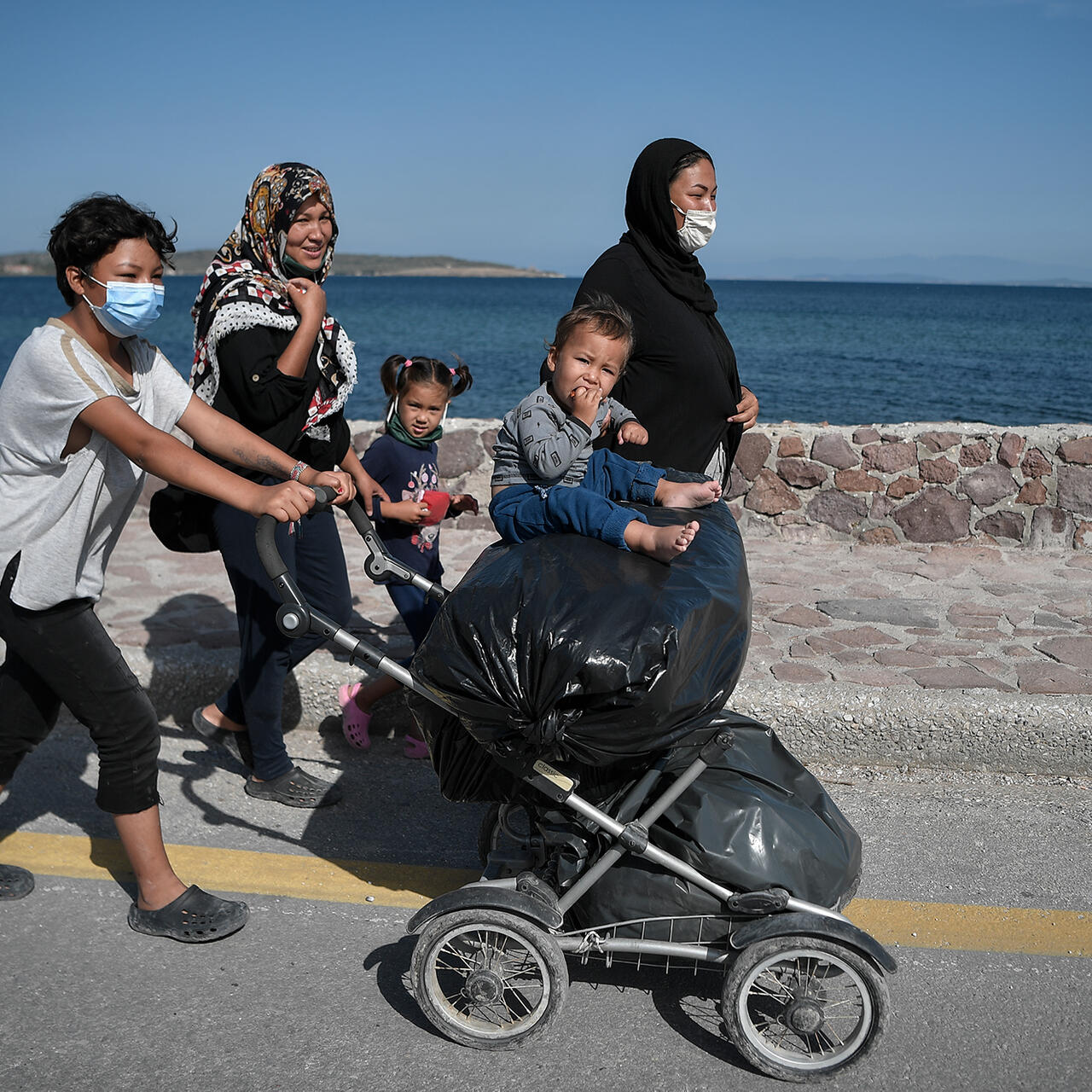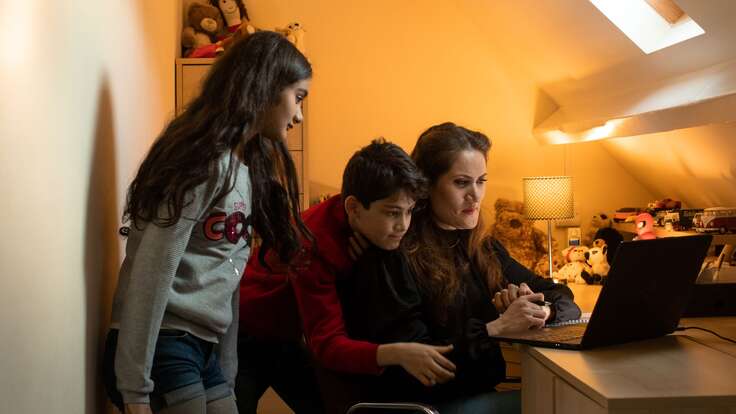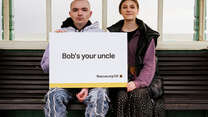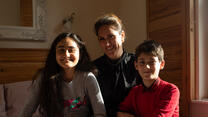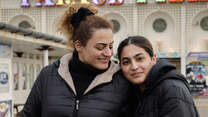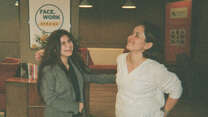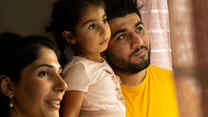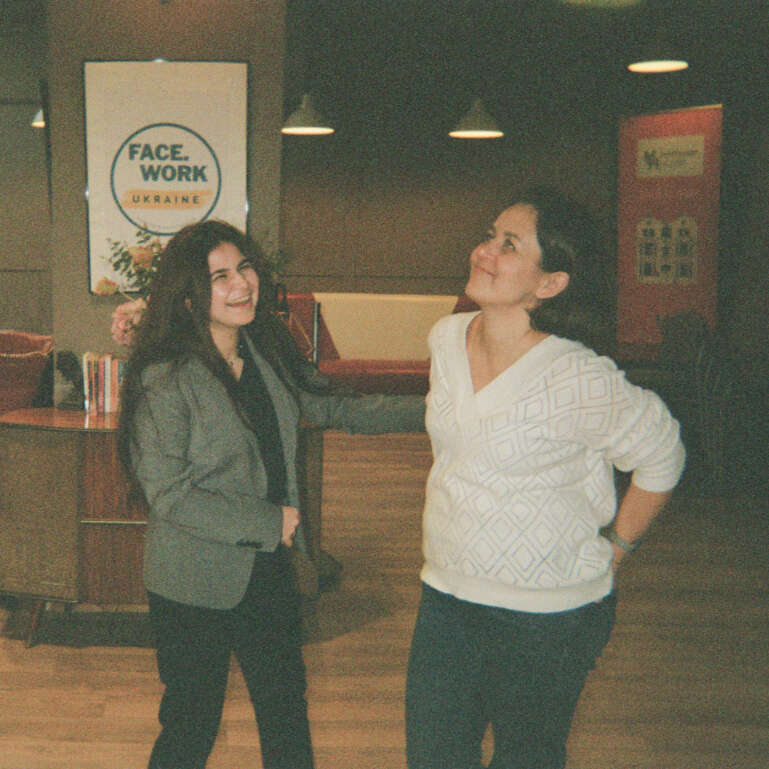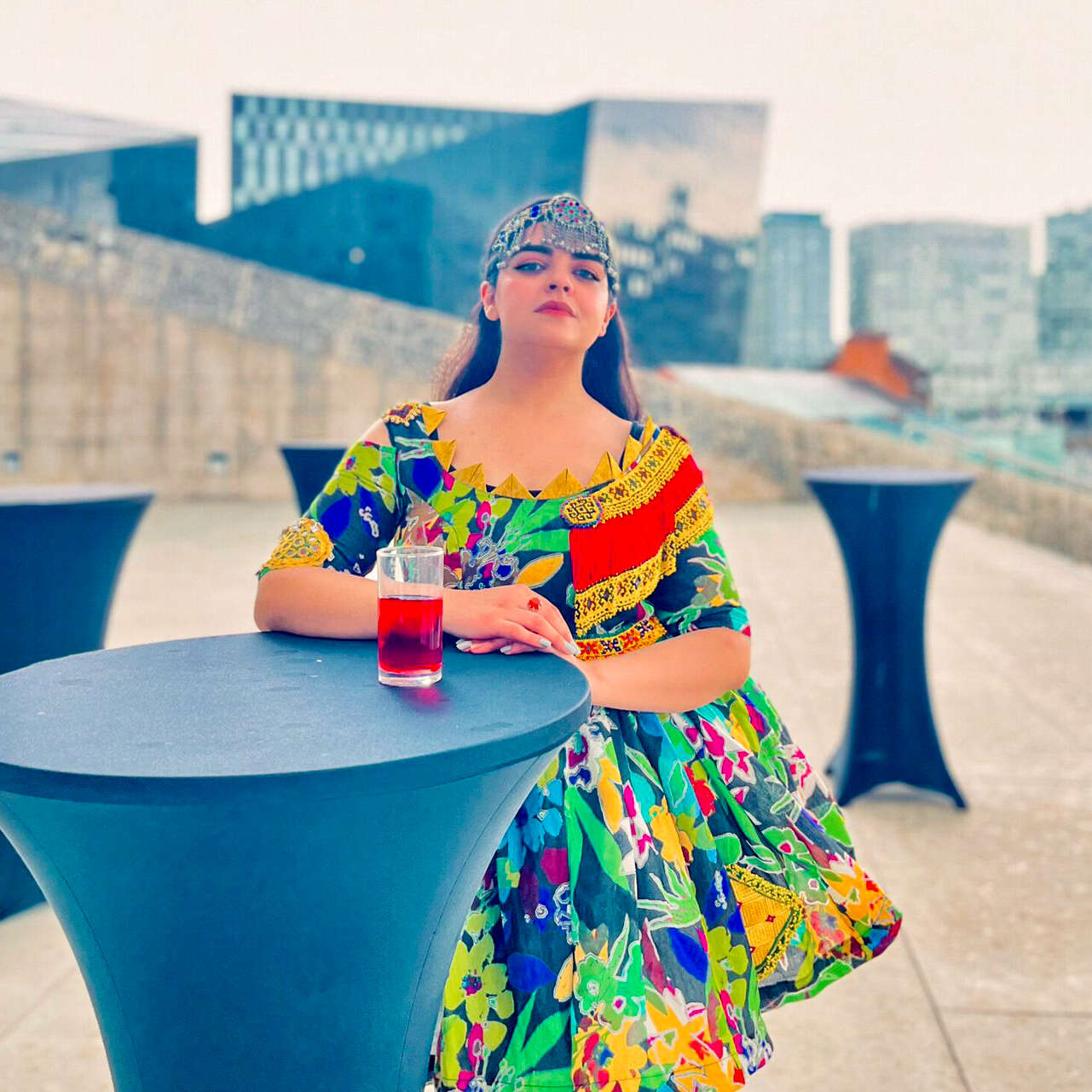More people have been forcibly displaced from their homes than at any time since World War ll. The IRC responds to some of the world's worst crises, delivering aid that saves lives while paving the way for long-term recovery.
More people are being displaced from their homes than ever before.
Since the armed conflict exploded inside Syria in 2011, millions of people have fled their homes.
Yemen has been embroiled in a bitter civil war for the past 6 years leaving more than 20 million people in need of humanitarian assistance.
Economic collapse in Venezuela has driven at least 4 million people from the country.
In Afghanistan increasing natural disasters, partly due to extreme weather resulting from climate change, are uprooting families.
Conflict in the Tigray region of Ethiopia is driving a rapid rise in humanitarian needs, including refugee movements into Sudan.
These are just a few of the crises driving historic displacement at a time when the UK is making it harder for refugees and asylum seekers to seek refuge; the United States is rebuilding its resettlement programme after the previous administration's policies denying assistance and safety to refugees and asylum-seekers, and the European Union is prioritising preventing people from reaching Europe’s shores.
Seventy years ago, 145 countries signed the 1951 Refugee Convention. After the Second World War caused the displacement of millions of people across Europe, a light was shed on the need for humanitarian protections for those forced to flee violence and persecution.
The Convention was developed on the heels of the Universal Declaration of Human Rights and a recognition that the protection of individuals and their rights and liberties is grounded in moral, humanitarian, and strategic imperatives. In 1967, those provisions were strengthened with the Protocol Relating to the Status of Refugees. Today, 149 states are party to one or both.
The Convention and Protocol obligate states to standards of treatment and protection of asylum seekers and refugees, including the principle of non-refoulment, which precludes states from returning people to a place where they risk persecution. Since 1951, 50 million people have been protected under the Convention’s umbrella.
Seventy years after the Refugee Convention, its tenets remain critical. The US, UK and Europe were key players at the time of its creation. With resettlement numbers in decline and the hardening of asylum policies, now is the time for the principles of the Convention to be reinvigorated.
More than 80 years after Albert Einstein helped create the IRC to rescue refugees fleeing Nazi persecution, the IRC is the only international aid organisation working on all fronts of the crisis. We work inside conflict-affected countries like Syria, as well as neighbouring countries such as Jordan, Lebanon and Iraq. The IRC works in countries like Greece with thousands of refugees entering Europe and in the United States, where the IRC helps to resettle refugees from around the world.
In the UK: The IRC has recently launched its first programme in the UK, working in partnership with local councils, to provide integration support to 200 resettled refugees in South East England. We provide refugees with the knowledge they need to access services in their local community and become self-sufficient. We work with local communities themselves to help them be better equipped to support the integration of local refugees, and we support all refugees — including women — to actively access opportunities in their local areas.
In Europe: The IRC was the first international aid organisation to support refugees arriving on the island of Lesvos, Greece in 2015 when over one million refugees and migrants arrived in Europe by sea. Today, IRC teams continue to work in Greece and along the Balkan route to support the most vulnerable refugees, including children travelling alone who are at risk of smuggling or trafficking. We help new arrivals navigate the confusing transit process and understand their legal rights, providing mental health to refugees and asylum seekers on the Greek islands. We also work to create policy change and to ensure that governments and institutions are responding effectively to refugee crises.
In Germany, we are helping refugees integrate into their new communities. Learn more about refugees in Europe.
In the United States: The IRC has 26 offices across the country that resettle refugees. We are also assisting families seeking asylum at the southern U.S. border. We provide immediate aid to refugees, including food and shelter, as well as access to the tools of self-reliance: housing, job placement and employment skills, clothing, medical attention, education, English-language classes and community orientation.
In the Syria region: Syria, Iraq, Jordan and Lebanon: More than 2,000 IRC aid workers and local volunteers operating inside Syria and in three neighbouring countries have reached millions of Syrians fleeing violence with emergency relief and long-term support. We're focusing on health care, protection of vulnerable women and children, education, and economic recovery and development.
In Afghanistan: The IRC has worked inside Afghanistan for nearly three decades and currently reaches over 4 million people in more than 4,000 communities, focusing on community-driven reconstruction projects and education. We also provide emergency relief to people who have been forced to flee their homes by violence.
More than 82 million displaced people - the highest number ever recorded - require more than “aid as usual”." Increasingly complex needs mandate a transformation in the global humanitarian response. The IRC aims to deliver this, with high-quality, client-centred and cost-effective programmes to support people fleeing conflict and crisis across the world.
Here are some of the ways that you can join us and stand with refugees.
Donate to support our work around the world. https://help.rescue-uk.org/donate
Volunteer for local organisations that support refugees in your community.
Follow the Rescue UK social media channels, Facebook, Instagram and Twitter to keep up to date with our work and help spread our message of support for refugees around the world.
